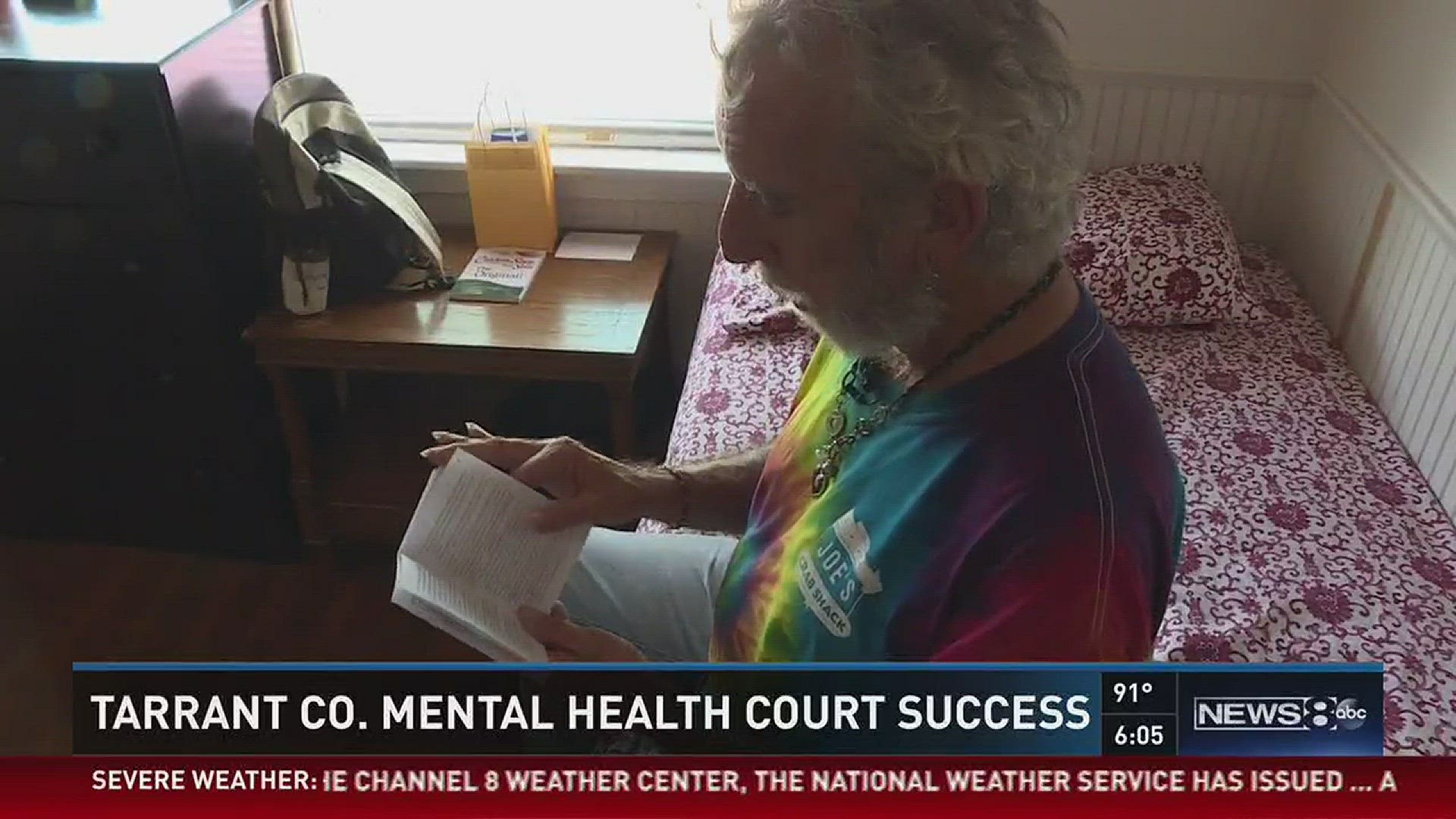FORT WORTH -- More than a quarter of individuals arrested for misdemeanors last year in Fort Worth had mental health issues, but a new program in Tarrant County is trying to change that.
The program, called the Enhanced Mental Health Docket, identifies repeat misdemeanor offenders who are diagnosed with mental illness and directs them to treatment instead of jailtime.
"Let's get help from the beginning and eliminate the revolving door," said Judge Rainey Webb, who oversees the program in Magistrate Court.
The program uses existing resources with a goal of changing lives and, ultimately, saving taxpayers' money.

"They were coming in and out of jail four and five times a year for the same thing," Webb said. "As a community, we're paying for them anyway."
The average incarceration costs thousands of dollars, and that pricetag adds up when offenders rotate in and out of jail, like Wade Arwine.
"I ain't got enough fingers and toes to count the amount of times I've been in the Arlington jail," Arwine said.

He's been jailed over 40 times since the 1970s, mostly for misdemeanor offenses like public intoxication and criminal trespassing. He's a diagnosed schizophrenic and alcoholic who lived on the streets for the last 25 years.
But now, he's living in a group home, is sober, and on medication for the first time in years. He said he's been on track for four months.
As part of the court program, he works with a case manager and has to regularly appear at court for check-ins. When he makes those appearances, he's often brought to tears.
"When I'm crying, it's really gladness," Arwine said. "I'm really proud of all that's happened to me."

Forty-five percent of the approximately 400 people who have been part of the Enhanced Mental Health Docket have stayed sober, in treatment, and out of trouble through the program's first year.
Webb knows that it's a challenging problem to address, but she's encouraged by the success she's seen with Arwine and others.
"Is there any guarantee? No," Webb said. "But for right now, he's in a place where he hasn't been in 30 years. For right now, he is, for sure, a success."

